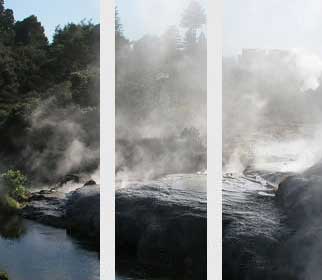Engineers at US-based AltaRock Energy have come up with an idea that they claim can lower the cost of generating electricity from geothermal systems.
Unlike conventional geothermal systems, which require locating subterranean reservoirs of heated water, the company's so-called Enhanced Geothermal System (EGS) uses hot dry basement rock to heat water in artificially created reservoirs.
With the recent injection of $26.25m of funding from Khosla Ventures, Kleiner Perkins Caufield & Byers, Google, Advanced Technology Ventures and Vulcan Capital, the company now intends to build a pilot plant to demonstrate the effectiveness of the approach.
In the EGS power-generation cycle, water is continuously injected down a well into engineered fractures, where it heats up as it flows through the rocks. The water is then brought to the surface in multiple production wells and its heat is extracted to generate electricity in power plants. Finally, the water, depleted of its heat, is re-injected to be heated again in the fractures.
The EGS concept has the potential to remove the 'dry-hole' risk associated with conventional hydrothermal geothermal, which requires finding existing fractures that contain high flows of hot water. EGS would also allow geothermal development to take place in sites without conventional geothermal resources.
A 2007 study led by the Massachusetts Institute of Technology estimated that with suitable investments and improvements to existing technology, EGS could supply up to 10 per cent of the electricity needs of the US within 50 years at prices competitive with fossil-fuel fired generation.
The report, 'The Future of Geothermal Energy - Impact of Enhanced Geothermal Systems (EGS) on the United States in the 21st Century' may be found online at:
http://www1.eere.energy.gov/geothermal/future_geothermal.html.





AI-generated medical responses need monitoring, study finds
This would negate most of the benefit of using AI in the first place, rather like the Locomotive Act 1865 that required any self-propelled road...